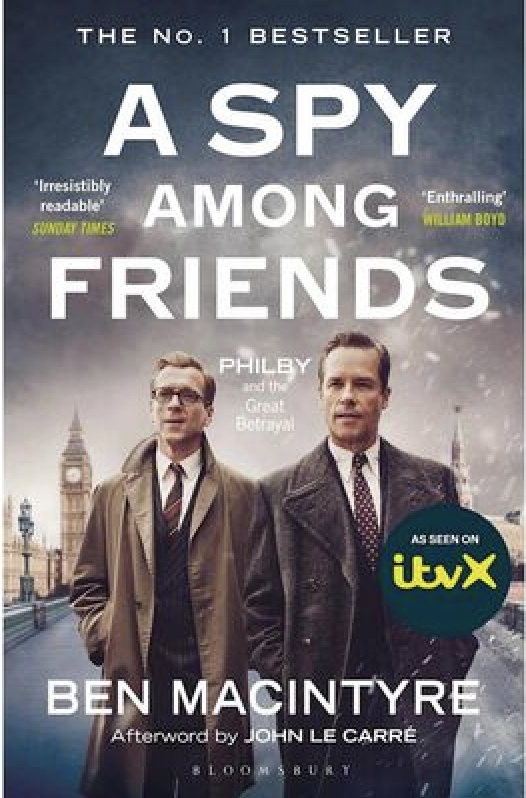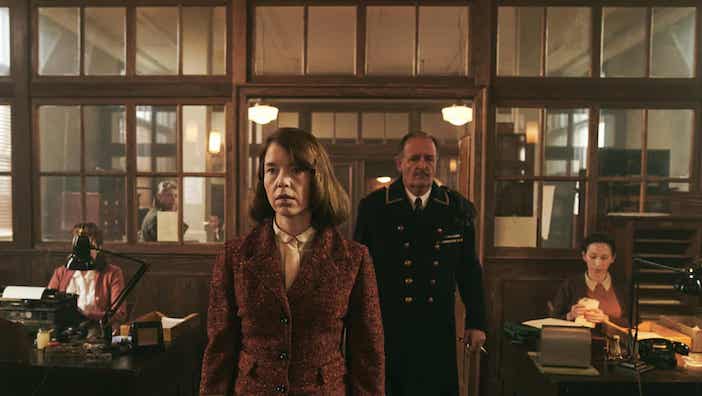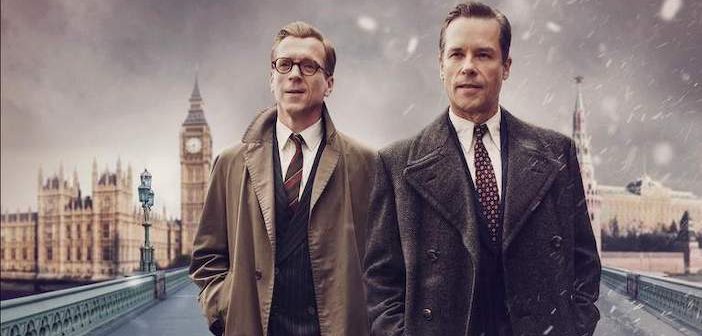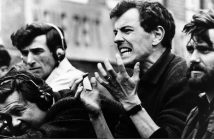Having just watched the recent TV drama, A Spy Among Friends, based on the book of the same name by Ben Macintyre published in 2016, it seemed a good moment to return to the original source material and see how the TV version matched up. It has to be said that A Spy Among Friends is both a very different story and a very different style of TV production to that of SAS Rogue Heroes, also based on a book by Ben Macintyre. On screen the latter comes across as a military version of Peaky Blinders with equally larger than life characters. It is also limited to the founding of the SAS in North Africa whereas the book also covers the subsequent history of the fledgling SAS through the rest of the war. A Spy Among Friends is a very different book and a very different TV drama as the story they tell is far more complex and sophisticated than the Boys’ Own story of Rogue Heroes. If they share anything it is the huge capacity for the consumption of alcohol of so many of their leading characters.
 Ben Macintyre has written six books concerned with spying and deception, of which four are focused on the careers of individual spies rather than schemes of deception. Agent Zigzag tells the story of Eddie Chapman a British double agent of whom it was unclear whether he was on the of the angels or the devils; The Spy and the Traitor looks at the career and extraordinary escape from the clutches the KGB of Oleg Gordievsky, the most important British, indeed Western, spy inside the KGB during the Cold War; Agent Sonya tells the story of the even more extraordinary career of Ursula Kuczynski, a dedicated German Jewish communist, who managed to combine bringing up three children while spying for the Soviets in Shanghai, Manchuria, Poland, Switzerland and Britain as well as surviving the Stalinist purges. A Spy Among Friends tells the story of Kim Philby, the most important of the Cambridge Spy Ring, and his unmasking. What all these books share is not just the detailed research that underpins all of Ben Macintyre’s books but his ability to unpick the social and political context within which his principal characters operated, how and why they became spies and the impact leading a double life had on their characters and relationships.
Ben Macintyre has written six books concerned with spying and deception, of which four are focused on the careers of individual spies rather than schemes of deception. Agent Zigzag tells the story of Eddie Chapman a British double agent of whom it was unclear whether he was on the of the angels or the devils; The Spy and the Traitor looks at the career and extraordinary escape from the clutches the KGB of Oleg Gordievsky, the most important British, indeed Western, spy inside the KGB during the Cold War; Agent Sonya tells the story of the even more extraordinary career of Ursula Kuczynski, a dedicated German Jewish communist, who managed to combine bringing up three children while spying for the Soviets in Shanghai, Manchuria, Poland, Switzerland and Britain as well as surviving the Stalinist purges. A Spy Among Friends tells the story of Kim Philby, the most important of the Cambridge Spy Ring, and his unmasking. What all these books share is not just the detailed research that underpins all of Ben Macintyre’s books but his ability to unpick the social and political context within which his principal characters operated, how and why they became spies and the impact leading a double life had on their characters and relationships.
At the heart of A Spy Among Friends is the betrayal not just of a country (the UK) and an institution (MI6) but of a deep friendship, that of Kim Philby and Nick Elliott, his close colleague in MI6. Macintyre uses the friendship to open a door on the world in which MI6 operated and how class, privilege and alcohol played such a central part in the success of Philby as a spy. The TV drama makes the most of this helped by the fact that, when it became clear Philby was a Russian agent, it is his friend Nick Elliott who interviews him and gets his partial confession. Macintyre describes the interviews as a ‘display of brutal English politeness, civilized and lethal’. Damien Lewis plays Elliott, the betrayed friend, as still in awe of his flawed hero despite his repressed anger. Guy Pearce plays Philby, the traitor unmasked, with all the manipulative charm that had proved the undoing of his friend. They are both excellent and their conversational duel is the best part of the TV version.
Where the TV drama does not quite live up to the book is in its portrayal of MI5 because it merges so many important MI5 officers into the character of Lily Thomas, albeit played superbly by Anna Maxwell Martin. Where it does succeed better is in exposing the competition, sometimes merging on animosity and certainly often fueled by class prejudice, between MI5 and MI6. The latter saw itself as socially and intellectually superior – Eton, Oxbridge, White’s, the Athenaeum and the MCC – compared to the workmanlike members of MI5. MI5 always suspected Philby was a bad egg whereas MI6 were blinded by Philby’s charm and clubability. How could someone like him, such a devoted member of the team ever be a traitor? The man loved cricket, for God’s sake.

When the truth was exposed, the sense of bitterness at being so hoodwinked and manipulated was all the deeper and for many resulted in either desperate attempts to rewrite the past or an obsession with finding yet more moles when there were no more to find. In many ways the individual most damaged in terms of his professional approach thereafter was James Angleton, Chief of Counterintelligence at the CIA. He was so shocked by the betrayal of someone he so admired, with whom he had enjoyed so many boozy lunches and shared so much sensitive information that he became paranoid in his belief the CIA was riddled with Soviet spies and almost destroyed the organisation in his relentless search for them.
The TV drama manages to convey well the paranoia that so often afflicts those involved in the secret world of spying and intelligence as everyone starts to investigate everyone else in the aftermath of Philby’s defection. In doing so it successfully transfers to the screen Ben Macintyre’s ability to explain and illustrate so well how both a breakdown in trust and a naturally suspicious mind can result in such seemingly irrational behaviour. It was a symptom of the Soviet system as much as of the CIA and MI6. As Ben Macintyre notes of Philby’s defection to Russia “he was never quite trusted. The ease with which he had escaped from Beirut may have rekindled …. the uneasy, queasy suspicion that he might yet be double-crossing the KGB”.
What the book is able to do which the TV drama cannot is examine in detail whether Philby’s final escape from Beirut to the Soviet Union was the result of monumental incompetence on the part of MI6 or whether the arch-manipulator was, for once, out-manipulated by his betrayed friend. Macintyre’s view is that it was the latter because it was in no-one’s interest in London that he should return. Not least, it would ensure that the public embarrassment of an inquiry let alone a trial would be avoided. I am with Macintyre but there is enough information for any reader to make up their own mind.

There is an interesting coda to this in the 1988 interview of Elliott by John Le Carré that is included in the book as an Afterword. Le Carré asks Elliott if they could have sandbagged Philby and taken him back to London. Elliott’s response is that nobody wanted him back in London. Le Carré then asks why they did not kill Philby to which Elliott responded: “My dear chap. One of us”. It was not only membership of the Old Boy Network that enabled Philby to survive, unlike so many of the victims of his betrayal, it also made his betrayal possible in the first instance. When asked to vouch for his recruitment the response of the Deputy Head of MI6 was “I knew his people”.
Both the original book and the more recent TV drama are worthy of attention. The TV drama certainly captures the spirit of the book, the characters of Elliott and Philby, and the social milieu from which they came and which colour so much of the story. What it inevitably lacks compared to the book, despite a valiant effort, is the time and space to develop the role and significance of the many other characters who add tellingly to the story. The book is, as with any book by Macintyre, well written and shows off his knack for a good turn of phrase and eye for a telling quote. Finally, what makes the story he tells so interesting is that it is not so much about ideology and politics than about character and friendship of a particular long gone British kind.
A Spy Among Friends by Ben Macintyre is available in all good stockists, published by Bloomsbury. The TV series of the same is currently available watch on ITVX.
Images courtesy of ITV/Sony Pictures Television




